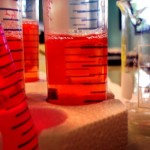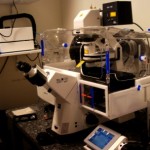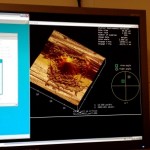Pre-Departure:
After a nerve wracking few weeks of waiting, the news came from Grenoble that I had been accepted for the 2013 Summer School program, and the administrative process accompanying travel soon began.
First on the agenda was to book flights, as this is a prerequisite before one is able to apply for a Visa. Fortunately, the trip to France warranted a slightly larger travel bursary from Stellenbosch University, and I was quickly able to find an Air France flight online.
Appointments for Visa applications at the French Consulate need to be made well in advance, especially during the busy June/July season. Only being able to find a slot two weeks after I had called the consulate, I applied for my Visa a mere ten days before my flight was due to depart. Trying to disguise nervousness, I arrived with all of my supporting documents (some of them printed in triplicate)- acceptance letters from Grenoble, proof of accommodation, travel insurance and flight details. Thanks to the notorious efficiency of the French, the process of Visa approval and delivery took no more than a week, which was a great relief.
A lot of correspondence with Grenoble INP also took place prior to my departure, since Summer School candidates all have to be registered, just as normal students would be. We were also provided with travel insurance by Grenoble INP. Luckily, communicating with the host university was easy and efficient, as the Summer School is assigned its own co-ordinating intern at Grenoble INP, who personally addresses any queries received and keeps in constant contact with the incoming students.
Foreseeing quite a bit of additional travel during my stay in Europe, I also opted for a Eurail Global pass (www.eurail.com), which provides virtually unlimited travel on European railway networks during a chosen time period, with the only additional costs being compulsory reservations for busier, high-speed trains and overnight lines.
In terms of finances, I made use of a Cash Passport from FNB (it is also available through a variety of other banks). This takes the form of a debit card, and can be topped up at any time, with any amount of money (which is immediately converted into the chosen foreign currency). Although ATM withdrawals included a small fee, I was able to swipe the card at any point of sale with no additional cost, which proved very convenient. (www.cashpassport.com).
Not being one to abandon my exciting, last-minute method of organisation, I left the venue of my last June exam and went straight to the airport to check-in.
Summer School:
Content:
Lectures were rather long (some spanned over three hours with a 15 minute coffee break in the middle), with the motivation being that mornings would be spent covering academic content so that students would have free afternoons to explore the city and surrounding areas.
The term “Nanotechnology” is incredibly broad, but the content covered in our modules is more or less as follows:
Nanobiology I (9h)
A common module to all students, this covered the basic principles of biology at the nanoscale, featuring topics such as cell adhesion, intracellular force generation and relevant biochemical principles.
Nanobiology II (9h)
This module was followed by students who selected the Nanobiology minor for the course. Introducing more practical applications, Nanobiology II contained topics such as micro technological tissue engineering and drug delivery by biological nanovectors. Parts of the module were presented to us by lecturers from the EPFL in Lausanne, Switzerland.
Nanophysics I (9h)
Also common to all students, Nanophysics I covered physics at the microscale by means of introductory content about Quantum Mechanics, statistical physics, electron tunnelling phenomena and microscale forces.
Nanophysics II (9h)
Followed only by students who had selected the Nanophysics minor, this module also engaged in a shift toward the practical and focussed on nanoelectronics currently employed in industry and research.
Microsystems (9h)
This module was hosted by Politecnico di Torino, with one of their lecturers coming to France to present the content to us. This module allowed us to observe which potential applications there may be for all the previous theory work we had covered, both in the Physics and Biology modules. As an introduction, we learned about various methods of microchip machining and manufacture and also covered automotives and consumer electronics, medical applications, including drug delivery, diagnostics and even artificial retinas, concluding with interesting future applications such as single-atom hard drives and energy harvesting.
Also included in the course content was an introductory French module, an International Relations module, as well as two speciality lectures on Ethics in Nanotechnology and Innovation Management.
Practical Component:
Nanophysics students were granted access to the Minatec cleanroom laboratories to make and test their own solar cells, while Nanobiology students performed various cell culture and microscopy protocols, providing opportunities to gain experience with fluorescence, confocal and Atomic Force microscopy. The Atomic Force Microscopy session was particularly interesting, since the chances of gaining exposure to such equipment at my level of study are exceptionally slim.
Visits:
The course also included visits to a number of prominent European university campuses and research institutions:
-Polito (Politecnico di Torino, Turin, Italy)
-EPFL (Ecole Polytechnique Federale de Lausanne, Lausanne, Switzerland)
-Neel Institute (Research laboratory for condensed matter physics, Grenoble, France)
-ESRF (European Synchrotron Radiation Facility, Grenoble, France)
-CIME Nanotech (Centre Interuniversitaire de MicroElectronique cleanroom laboratories, Grenoble, France)
All transport costs are included in the course fee, and students are given multiple presentations by lecturers and researchers, as well as free time to explore the cities in which these institutions are based.
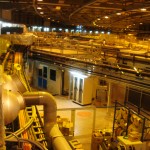
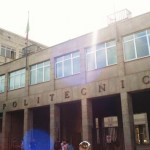
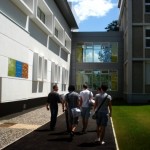
Many cultural activities were also included in the program. Visits to locations such as city monuments and the city of Lyon and the mountain village of Autrans provided a break from studies as well as a good opportunity to explore and get to know everyone taking part in the program. There is also an evening dedicated to Oenology (wine tasting), which is an exciting prospect for any Stellenbosch student!
Program content is spaced in such a way that allows time for ample socialising and getting acquainted with fellow students. We were out for a good portion of our free afternoons and evenings, exploring Grenoble’s vibrant parks, pubs and restaurants, even venturing into surrounding cities by train when we were able- mainly over weekends.
During the final week of the program, examinations are written for the major subjects. Each paper is allocated an hour and determines whether or not the student receives the full compliment of ECTS credits for the Summer School, which is 6.
Having a few weeks of varsity vacation left, I seized the opportunity to do some travelling of my own and made use of my Eurail pass and hostels across Europe as I travelled through Venice, Munich, Amsterdam and finally back to Paris for the flight home.
Return:
I returned to a cold Stellenbosch winter and began second semester classes just a few days later. It wasn’t difficult getting into a routine since a large part of my “holiday” had been spent studying- the most challenging part of returning is definitely acclimatising after experiencing a European summer! Nevertheless, I enjoyed sharing all my experiences with friends and family back home.
In terms of the course, my first point would be that although it is only five weeks in length, it managed to provide me with a vast amount of new technical knowledge to which I would not have gained exposure during my undergraduate degree.
Whether your background lies in Physics, Biology or any of the diverse spheres within engineering, this course is designed to equip you with a degree of fundamental knowledge about other fields, while also managing to extend your knowledge and perspective of your own field. For any technologically oriented degree, this Summer School is a valuable experience in terms of exposure to technical expertise, international research within industry and academia, as well as prospective opportunities for future careers and study, as we were frequently given the opportunity to socialise with researchers and academics at the institutions we visited, who all indicated that they were in search of interns or doctoral candidates.
Even if your career or study ambitions do not lie within the realm of Nanotechnology, the nature of the field ensures that you’re exposed to the forefront of research and innovation across a number of disciplines.
My only negative comment about the course would be the lack of support from South Africa, as it quickly came to my attention that I was the only participant who had come from the Southern hemisphere. Although I had endless amounts of fun being the token “African” and sharing stories about wildlife and polygamous presidents, my hope is that this post will encourage more Stellenbosch students to apply for this opportunity and that the University will be represented by larger numbers in Grenoble next year, and in years to come.

